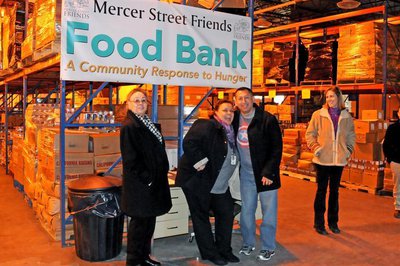Thoughts for the Day
Wednesday, 11th June 2025: Holding all things in common
World Church Community Acts 4 Caring Sharing
Reading : Verses from Acts, Chapter 4

Now the whole group of those who believed were of one heart and soul, and no one claimed private ownership of any possessions, but everything they owned was held in common. With great power the apostles gave their testimony to the resurrection of the Lord Jesus, and great grace was upon them all. There was not a needy person among them, for as many as owned lands or houses sold them and brought the proceeds of what was sold. They laid it at the apostles’ feet, and it was distributed to each as any had need. There was a Levite, a native of Cyprus, Joseph, to whom the apostles gave the name Barnabas (which means ‘son of encouragement’). He sold a field that belonged to him, then brought the money, and laid it at the apostles’ feet.
(Lectionary, New Revised Standard Version)
Thoughts
Years ago working as a Diocesan Officer I travelled the whole area helping churches and schools to run training days or peaching, that I grew quick at assessing their strengths and weaknesses. Churches ranged from ancient chapels to modern buildings of glass and stone. Some had a few elderly people who worshipped almost in silence, others were full of people of all ages who sang and shouted to the Lord. But one thing I noticed were the congregations who sought to help others. A brief glance at the notice board or news sheet would say it all. Did 'helping one another' mean they only helped those attending the church, or did it include the local community, and people around the world? Was their generosity reserved only for paying the church expenses and the upkeep of the building (which was no mean feat, I know!)
In Acts we see the new Church, after the coming of the Holy Spirit, spending much time in prayer and worship, as thousands joined their numbers each day. But this unity also showed itself in practical ways. As the Holy Spirit inspired them, they began to share what they possessed to ensure that no-one went hungry or in need. There were thousands of people in Jerusalem, from around the world at the festival of Pentecost, most would have left their homes and jobs, so this would have been essential. In future years the church in Philippi (largely made up of gentile christians) established by St Paul would financially support the church in Jerusalem (2 Corinthians 8.1-5)
Most of us no longer tithe a tenth of our income to the church, but many of us give to charities and food banks to help those who struggle. However, helping others includes a myriad of other ways, from using our time or equipment to help someone else; to listening or praying for others; to sending unwanted items to charity and gift aiding it where possible. It's about allowing the Holy Spirit to help us see people as more important than possessions, time, or our money.
Prayer
Generous God,
may we learn to be truly generous
to one another
in any way that we can,
through our time, our talents or our money.
No matter our income or health,
teach us to think of others before ourselves,
and to spread that care and concern
in our prayers and our action
across our church community,
our neighbourhood,
and indeed our world.
Amen.
You might like some of these ideas to help other people:
- How to help others (WikiHow)
Or play this:
- Brother, sister let me serve you (Chet Valley churches)